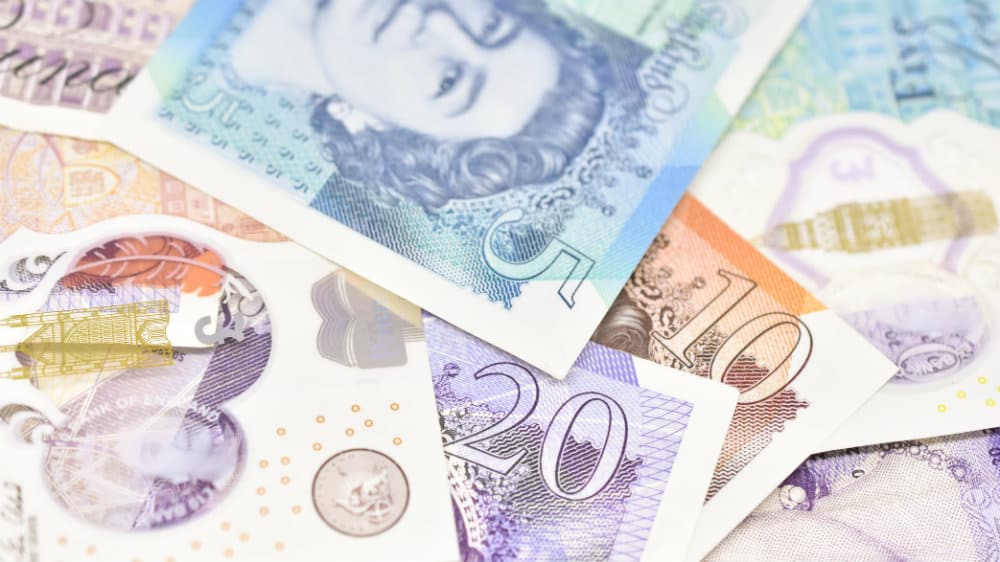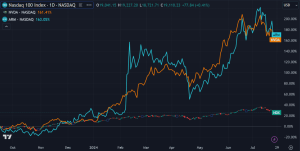I like the idea of making a passive income from the stock market, if and when I retire. I’d want my basic standard of living covered by pensions and low-risk investments. But I could invest surplus cash in the stock market, targeting extra income from dividends.
I’ve been looking at four approaches I could use. Of course, with all stock market investments — including these approaches — there’s a risk to my capital. Dividends aren’t guaranteed either. In addition, I can see different advantages and disadvantages to the four approaches I’ve been looking at.
5 Stocks For Trying To Build Wealth After 50
Markets around the world are reeling from the coronavirus pandemic… and with so many great companies trading at what look to be ‘discount-bin’ prices, now could be the time for savvy investors to snap up some potential bargains.
But whether you’re a newbie investor or a seasoned pro, deciding which stocks to add to your shopping list can be a daunting prospect during such unprecedented times.
Fortunately, The Motley Fool UK analyst team have short-listed five companies that they believe STILL boast significant long-term growth prospects despite the global upheaval…
We’re sharing the names in a special FREE investing report that you can download today. And if you’re 50 or over, we believe these stocks could be a great fit for any well-diversified portfolio.
Low-cost passive income
An index tracker, such as iShares Core FTSE 100 UCITS ETF, is one option for me. This simply holds the UK’s 100 biggest companies in the same proportions as the index.
The top five holdings are currently Shell (7.4%), AstraZeneca (6.7%), HSBC (5.4%), Unilever (4.8%), and Diageo(4.3%). And the running dividend yield is 3.7%.
One advantage of this iShares ETF is its low cost. It only has to trade occasionally when a company drops out of the index and a new company comes in.
One disadvantage is that the FTSE 100 includes some companies that don’t pay dividends. This pulls the overall yield down a bit.
Shooting for a higher yield
An alternative to a FTSE 100 tracker for me might be iShares UK Dividend UCITS ETF. This holds the 50 highest yielding companies in the FTSE 350 index and is rebalanced semi-annually.
With yield being a key factor in the weighting of the companies, its top five holdings are somewhat different to the FTSE 100’s. They’re currently British American Tobacco (5.9%), BP (5.1%), HSBC (4.9%), Rio Tinto (4.9%), and Vodafone (4.7%).
One advantage of this ETF is its high running yield of 5.3%
One disadvantage is that its mechanical focus on yield takes no account of dividend sustainability.
One eye on income growth
Another approach I could take for a passive income would be to entrust my money to the manager of an equity income investment trust, such as City of London.
This trust has a running yield of 4.7% and has increased its dividend for 55 consecutive years. Its current top five holdings are Diageo (4.4%), British American Tobacco (3.9%), Relx (3.4%), Tesco (2.8%), and Unilever (2.7%).
One advantage is that City of London, like a lot of investment trusts, maintains a revenue reserve. This has enabled it to keep its own dividend ticking higher, even in years when some of its underlying holdings have suffered dividend setbacks.
One disadvantage is I’d be relying on the trust managers to maintain their past performance.
DIY passive income
A fourth approach I could take is one I currently favour. Namely, build a portfolio of dividend stocks and a revenue reserve myself.
One advantage is I’d be free to choose exactly what companies I invest in and the weighting I give them in my portfolio.
One disadvantage is, compared with the other approaches, I’d have to spend a bit more time keeping up to date with companies’ results and so on.
But then, as a long-time Fool, that’s something I’ve always enjoyed!
Our 5 Top Shares for the New “Green Industrial Revolution”
It was released in November 2020, and make no mistake:
It’s happening.
The UK Government’s 10-point plan for a new “Green Industrial Revolution.”
PriceWaterhouse Coopers believes this trend will cost £400billion…
…That’s just here in Britain over the next 10 years.
Worldwide, the Green Industrial Revolution could be worth TRILLIONS.
It’s why I’m urging all investors to read this special presentation carefully, and learn how you can uncover the 5 companies that we believe are poised to profit from this gargantuan trend ahead!
Access this special “Green Industrial Revolution” presentation now
G A Chester has no position in any of the shares mentioned. The Motley Fool UK has recommended British American Tobacco, Diageo, HSBC Holdings, RELX, Tesco, Unilever, and Vodafone. Views expressed on the companies mentioned in this article are those of the writer and therefore may differ from the official recommendations we make in our subscription services such as Share Advisor, Hidden Winners and Pro. Here at The Motley Fool we believe that considering a diverse range of insights makes us better investors.
This post was originally published on Motley Fool







